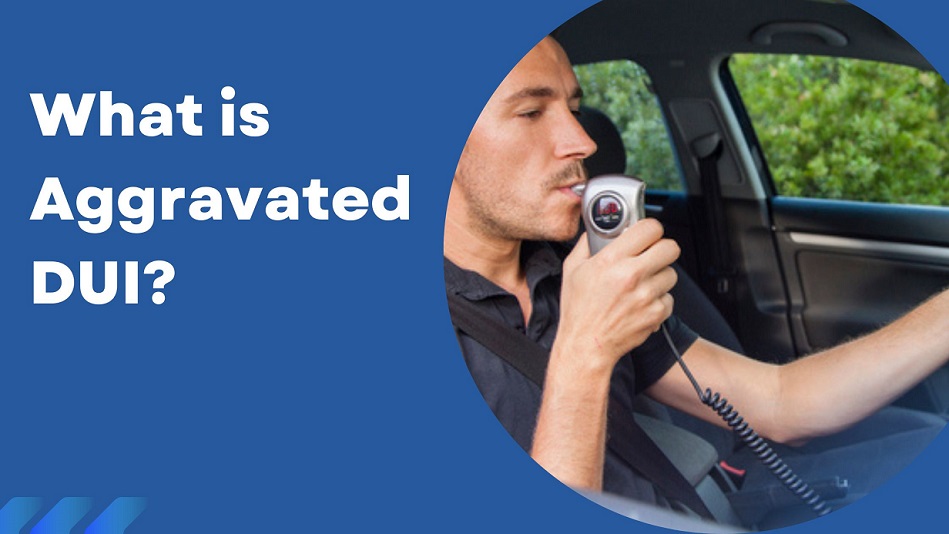If you’ve ever wondered what makes a DWI charge more serious, you’re not alone. Many people are familiar with standard Driving While Intoxicated offenses, but the “aggravated” version often sparks confusion—and concern. While a typical DWI is already serious, a charge with enhanced factors takes the consequences up several notches.
In this article, we’re going to take a deep dive into what this escalated offense means, what circumstances lead to it, how it differs from a standard DWI, and what penalties you could face if charged. We’ll use real-life stories and break down the law in plain, engaging terms—because if you or someone close to you is facing this charge, understanding your situation could be life-changing.

So, What Is Aggravated DWI?
Let’s start with the basics. An aggravated Driving While Intoxicated offense involves one or more aggravating factors—circumstances that make the situation more dangerous or severe in the eyes of the law.
These aggravating factors could include:
- A very high blood alcohol concentration (BAC)—usually 0.15% or above
- Driving with a minor in the vehicle
- Causing injury or death while under the influence
- Driving with a suspended or revoked license
- Having prior DWI convictions
In many states, a standard DWI might be classified as a misdemeanor, but add one of the above elements, and it quickly escalates to a felony or an enhanced misdemeanor—bringing harsher penalties, longer jail time, and deeper legal consequences.
Real-Life Story: One Mistake, Many Consequences
Consider the case of Sam, a 36-year-old plumber from Lubbock, Texas. Sam was arrested for driving while intoxicated after hitting a mailbox on his way home from a bar. His BAC was 0.17%—more than twice the legal limit. On top of that, his 10-year-old son was asleep in the backseat.
Sam didn’t think much would happen. It was his first arrest, and no one was hurt. But when he showed up in court, he learned the prosecution had upgraded the charge to a more serious DWI offense—a felony due to the high BAC and the presence of a minor. He lost his job, spent three months in jail, and had to install an ignition interlock device in his car for two years.
The lesson? A DWI can become enhanced in an instant—and the fallout can be life-changing.
Key Differences Between Standard and Aggravated DWI
BAC Level
The standard legal limit for BAC is 0.08%. But when the level hits 0.15% or higher, it signals a higher level of intoxication, leading to elevated charges. Courts view this as a sign of extreme recklessness.
Presence of a Minor
Driving while intoxicated is dangerous. Doing so with a child under 15 in the vehicle escalates the charge. Most states treat this as child endangerment and automatically elevate the case to a more serious offense.
Causing Injury or Death
This is where a DWI becomes truly life-altering. If you injure someone—or worse, kill them—while under the influence, you could face charges like intoxication assault or manslaughter, both of which fall under felony-level driving offenses in many jurisdictions.
Repeat Offenses
Multiple convictions within a set period (often 5–10 years) will often lead to felony charges. Some states automatically treat a third DWI as a felony, even without additional aggravating circumstances.
Driving Without a Valid License
Being caught behind the wheel while intoxicated and without a valid license—especially if previously revoked due to a similar offense—usually results in a heightened charge.

What Is Aggravated DWI in Texas?
Since laws vary by state, it helps to look at one jurisdiction closely. In Texas, an aggravated DWI can result from:
- A BAC of 0.15% or more
- Two or more prior DWI convictions
- Accidents causing serious bodily injury or death
- Driving with a child passenger under 15
- Refusing to take a chemical test and having a prior offense
In Texas, any of these can turn a Class B misdemeanor DWI into a Class A misdemeanor or a state jail felony, or even a third-degree felony, depending on the circumstances.
Penalties for Aggravated DWI
The punishment for aggravated DWI is far more severe than for a standard offense. Here’s a breakdown of what you could face:
Jail or Prison Time
- First-time aggravated DWI (e.g., high BAC): Up to 1 year in jail
- Felony aggravated DWI: 2–10 years in prison
- Intoxication manslaughter: 2–20 years in prison
Fines
- Misdemeanor fines: Up to $4,000
- Felony fines: Up to $10,000
- Additional state surcharges of $1,000–$2,000 annually for 3 years
License Suspension
- Suspension for 180 days to 2 years
- Required DWI education courses
- Mandatory ignition interlock device installed on your car
Probation and Community Supervision
- Lengthy probation terms (up to 10 years)
- Random drug/alcohol testing
- Mandatory community service (often 100+ hours)
These penalties don’t even account for collateral damage like job loss, housing issues, increased insurance rates, and damaged personal relationships.

Real-World Impact: When Consequences Go Beyond Court
Let’s look at another case. Jessica, a 42-year-old registered nurse in San Antonio, had one drink too many at a holiday party. She chose to drive home, assuming she was okay. A minor fender bender landed her with an aggravated DWI due to her BAC of 0.16%.
She didn’t go to prison—but she lost her nursing license, had her license suspended for a year, and struggled to find work. Her employer didn’t want the risk. Jessica’s story is a painful reminder that an aggravated DWI doesn’t need to involve injury to destroy a career.
Can Aggravated DWI Charges Be Reduced?
Yes—but it’s complicated. Your attorney might negotiate with prosecutors for lesser charges, particularly if:
- No one was injured
- It’s your first offense
- You agree to rehab or treatment
- You cooperate fully with authorities
An experienced defense lawyer may be able to challenge the BAC test’s validity, argue the stop was unconstitutional, or dispute whether an aggravating factor actually applies. However, these defenses require fast action and thorough preparation.
Defending Against an Aggravated DWI Charge
Facing aggravated DWI charges can feel overwhelming—but you still have rights. Here are a few defenses an attorney may explore:
- Improper stop: If police didn’t have a valid reason to pull you over, evidence may be suppressed.
- Faulty testing: Breathalyzers can produce false positives if not calibrated or administered correctly.
- No probable cause: If your arrest lacked proper justification, the entire case could be thrown out.
- Challenge to aggravating factor: If, for example, the child passenger was above the state’s legal definition of “minor,” that detail could shift the charge back to standard DWI.
While aggravated DWI is a serious charge, it doesn’t mean conviction is guaranteed.
What To Do After Being Charged with Aggravated DWI
1. Don’t panic—but don’t ignore it either
This is serious. You need to respond quickly and calmly. Ignoring court notices or failing to act can lead to a warrant or worse penalties.
2. Hire an experienced DWI attorney
Not just any attorney—someone with specific experience in aggravated DWI defense. Their familiarity with local courts, prosecutors, and DWI case law is your best asset.
3. Follow all conditions of release
This may include abstaining from alcohol, submitting to testing, and installing an ignition interlock device. Violating these terms can send you straight to jail.
4. Start gathering records and evidence
Document everything—your location, BAC, what you drank, who you were with, and anything else your attorney may need. Even small details can make or break a case.

Long-Term Consequences of Aggravated DWI
Criminal Record
Aggravated DWI charges typically result in felony convictions, which can stay on your record for life.
Employment Barriers
Many employers conduct background checks. A felony DWI could disqualify you from entire industries—like healthcare, education, law enforcement, and government work.
Insurance Fallout
Car insurance rates skyrocket after an aggravated DWI. In some cases, providers may drop your coverage altogether, forcing you into high-risk insurance pools.
Immigration Impact
For non-citizens, an aggravated DWI can lead to deportation, visa denial, or permanent inadmissibility—even if it’s your first offense.
Can You Expunge or Seal an Aggravated DWI?
Unfortunately, aggravated DWI convictions are much harder to expunge or seal than standard misdemeanors. However, you may qualify if:
- You were found not guilty
- The charges were dismissed
- You completed a pretrial diversion program (rare in aggravated cases)
Even sealing your record may not fully remove the conviction from federal databases, which can still affect employment, housing, and background checks.

Final Thoughts: What Is Aggravated DWI and Why It Matters
So, what is aggravated DWI? It’s a more severe, legally escalated version of a standard DWI—triggered by high BAC levels, endangering others, prior offenses, or driving on a suspended license. The stakes are high, and the consequences can reshape your life.
But understanding your rights, acting quickly, and hiring the right attorney can make a huge difference. Whether you’re trying to protect your license, your freedom, or your future, the first step is knowledge. Now that you know what aggravated DWI really means, you’re already ahead of the curve.
It’s not just about driving—it’s about the ripple effect that one decision can cause. Be smart. Be informed. And when in doubt, don’t face it alone.

